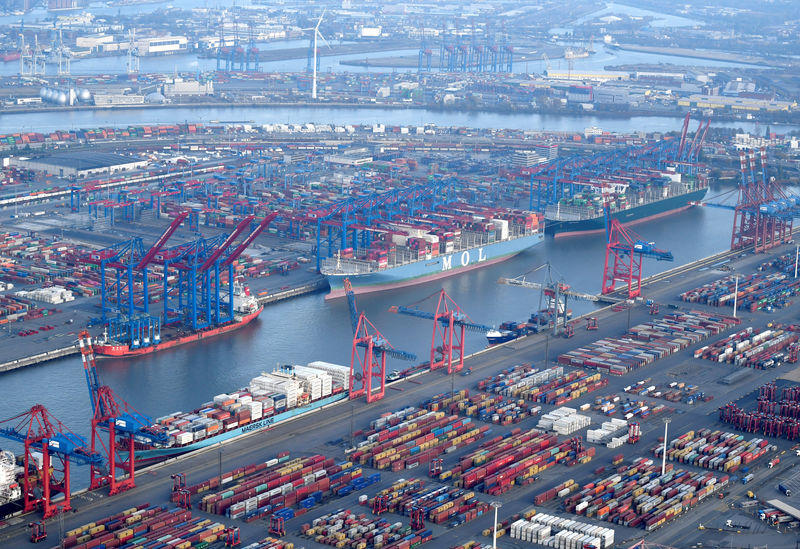By Paul Carrel and Rene Wagner
BERLIN (Reuters) - German business morale rose in November and Europe's largest economy is on track to grow by 0.2% in the fourth quarter as its domestic strength more than offsets a manufacturing recession, the Ifo economic institute said on Monday.
Munich-based Ifo said its business climate index rose to 95.0 in November from 94.7 in October. The November reading was in line with a Reuters consensus forecast.
Europe's biggest economy is going through a soft patch as its export-oriented manufacturers battle with trade friction, a struggling car industry and uncertainties over Britain's planned departure from the European Union.
"The German economy is showing resilience," Ifo President Clemens Fuest said, adding that mainly consumer-driven domestic economic strength pointed to a "very good Christmas". But he added that manufacturing "is still stuck in recession".
The institute's chief economist, Klaus Wohlrabe, said it was too early to speak of a turnaround in the economy, which contracted in the second quarter before growing slightly in the third.
"Companies tell us that industrial order backlogs are still not satisfactory," Wohlrabe told Reuters.
Highlighting the challenges facing German manufacturers, carmaker Volkswagen (DE:VOWG_p) last week cut its forecasts for operating profit and sales growth due to a downturn in demand for passenger cars.
"It is fair to say that the very best of the party is over," Chief Financial Officer Frank Witter said.
Thomas Gitzel, economist at VP Bank, said the Ifo survey showed "growth will not go into freefall for the time being" but that Ifo's warning the manufacturing sector is stuck in recession was cause for concern.
"It should be noted that developments in the manufacturing sector precede those in the services sector," Gitzel said. "The dangers for the German economy have by no means been averted."
Detailed data released on Friday showed strong exports, state spending and consumers helped the German economy avoid a recession in the third quarter. The figures confirmed a preliminary reading of a 0.1% expansion on the quarter.
Conservative Chancellor Angela Merkel's right-left coalition government has rejected calls from industry groups and economists for a stimulus package to put the economy firmly back on a growth trajectory.
In its 10th successive year of growth, the economy has been relying on strong consumption as exports weaken, which resulted in a second-quarter GDP contraction of 0.2%.
Economists have been urging the government to ditch its policy of incurring no new net debt, saying it should instead borrow to finance a stimulus package.

The government seems to be betting instead on an easing of trade frictions between the United States and both China and the EU to revive Germany's manufacturing sector.